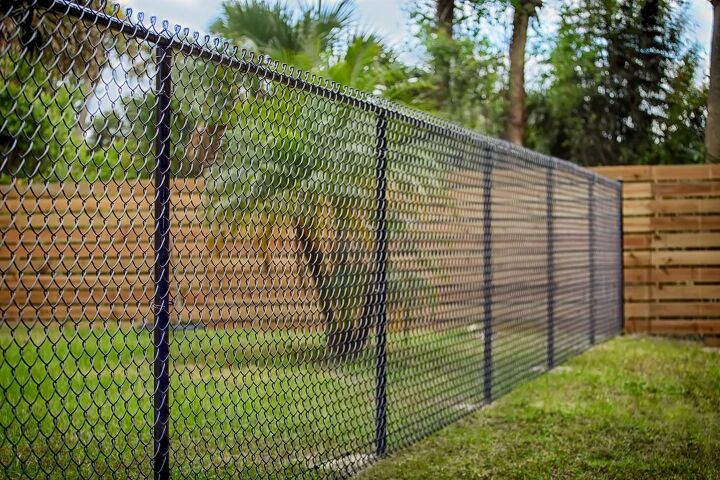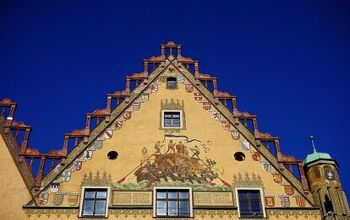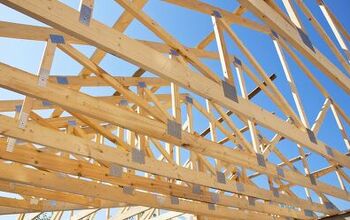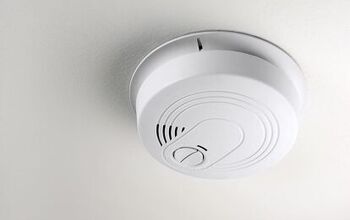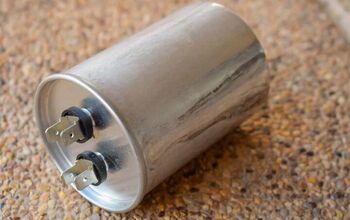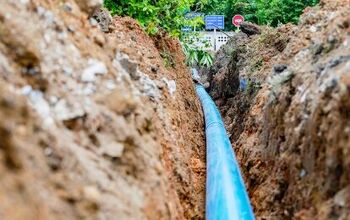3 + Types Of Chain Link Fences (With Photos)

Chain link fences are one of the most durable and affordable types of fencing you can choose from for your home. Unlike many other fence materials, chain link fences provide a strong security perimeter for your property and require little to no maintenance. However, these fences tend to receive a bad reputation for their appearance. While this may be the case to some extent, there are many different types of chain link fences available.
Chain link fences can be categorized based on a number of factors, including gauge, wire type, coatings, height, and the size of the diamond or square mesh. Though, the most popular types of chain link fences are galvanized, stainless steel, and PVC coating.
Although chain link fences may offer little in terms of privacy or visual appeal, they are ideal for keeping out unwanted pests and enclosing pets or small children on your residential property. If you’re considering constructing a chain link fence, continue reading for all there is to know about the different types of chain link fence you have to choose from.
Do You Need Fence Installation or Repair Services?
Get free, zero-commitment quotes from pro contractors near you.

Overview of Chain Link Fences
While the different types of chain link fences may look different, they all consist of the same woven framework. Building a chain link fences begins with angle-iron stakes being cement into the ground on each end of the fence and intermediate stakes installed at 10-foot intervals along the fence line. Straining wires are run through the intermediate stakes along the top and bottom of the fence and pulled tight.
Then, a metal pole is inserted into one end of the netting or mesh roll and secured to one of the fence’s end posts. The roll is pulled taut against the straining wires and small clips are used to hold the netting in position. Regardless of the type of chain link you have, it will consist of four distinct components: the framework, the mesh or netting, a gate, and the various fittings. The construction of chain link fences is incredibly secure and, standing six feet tall, very difficult to climb.
Chain Link Fence Uses
These fences are ideal for a number of applications. They are great for keeping your pets safe and contained in your yard, as well as for dog kennels or enclosures around dog parks. Chain link fences can provide an excellent security barrier around your residential or commercial property.
Other applications include fencing around playgrounds, baseball diamonds, basketball courts, or other sporting activities. Chain link fences are also a great choice for temporary use, as the steel posts can be easily pulled out of the ground and the fencing rolled up and put away. When it comes to choosing the right type of chain link fence, your decision should be based on your individual needs.
Chain Link Fence Gauge
The way that chain link fence gauges work is that the lower the gauge number, the thicker, stronger, more durable, and bigger the diameter of the wire will be. Gauge sizes range from as low as 6 to as much as 13, with the average chain link fence gauge size being 11. To put things into perspective, a size 10-gauge is slightly thicker than an 11-gauge, but the thickest and most durable size is 6-gauge.
Ultimately, the wire gauge size you choose depends on the anticipated tension on your chain link fence and security concerns. With that said, if the strength of your fence and security is a priority, you want to go with a lower gauge chain link fence.
Chain Link Fence Mesh Size
A chain link fence’s mesh size refers to the diameter, or the inside diagonal measurement of the mesh – known as the “square measurement.” To determine the mesh size of a fence, you must measure the diameter of the diagonal interior squares or diamonds. The most common chain link fence mesh square is two inches, usually seen on 9- to 11-gauge mesh.
Though, you’ll often find larger mesh squares on construction or commercial grade chain link fencing. Like gauge size, you want to opt for smaller mesh sizes as anticipated fence tension and security concerns increase.
Chain Link Fence Heights
In regards to height, chain link fence mesh comes in rolls that are between three and twelve feet high. The height that you choose for your chain link fence build will depend on your specific needs.
Chain Link Fence Wire Type
The various types and styles of chain link fencing tend to revolve around the differences in wire. There are three most common wire types used for residential chain link fence applications, with PVC and polymer coatings being other options to protect your chain link fence.
1. Galvanized
Galvanized fencing is, arguably, the most popular style of chain link fence available. As chain link fences are made entirely of metal, they are highly susceptible to rusting over time. However, with galvanized fencing, this is no longer a problem. These fences are more durable and usually more visually appealing as well.
They are often referred to as zinc-coated, as zinc is the most common material used to galvanize a chain link fence. The wires are dipped into zinc and galvanized using one of two methods: galvanizing after weld (GAW) or galvanizing before weld (GBW). With GAW, the wire is galvanized before being welded into a mesh. The drawback to this option is that the welding process will burn the wire at intersection points and make these are susceptible to rust.
GBW, on the other hand, is a stronger choice. It involves the mesh being galvanized after welding, which eliminates the possibility of rust. Regardless, both types will last about 12 years with no maintenance required.
2. Stainless Steel
Of all the different types of chain link fence wire materials, stainless steel wires are the most durable. Though, this also means that stainless steel is the most expensive option. These fences offer high alkali resistant, the ability to withstand high temperatures, and resistance to inclement weather conditions. Additionally, stainless steel is not prone to rolling, sagging, or breaking, maintaining its shape for many years to come.
For this reason, stainless steel chain link fences are commonly used along highways, railroads, airports, and other applications that necessitate above average performance. As these fences also resist chemicals, corrosion, and rust, they are ideal for seaside fences or other locations that are exposed to high levels of salt.
3. Aluminum
With aluminum chain link fences, you enjoy the benefit of weather resistance, corrosion resistance, longevity, high tensile strength, and an overall lightweight material. The coating process with aluminum wire is the same as galvanized wire. These chain link fences are the ideal choice for public or commercial use, such as on a ranch or school property. Because of their high durability, aluminum chain link fences will typically last up to 25 years, even in areas inclement weather conditions.
Additional Wire Coatings
While galvanized zinc is an affordable and effective way to protect your chain link fencing, there are other options to add durability and enhance aesthetics. Both PVC and polymer coatings are a popular choice that provide a much more visually appealing coating that makes them suitable for residential applications. However, they do cost more than opting for galvanized steel.
PVC is a vinyl coating, while polymer is a powdered coating, with both offering rubberized coating around the metal to give it a nice look and feel, while also shielding it from rust, scratches, and weather. When properly applied, PVC coating will not peel or crack easily.
These coatings have a natural shine to them and also come in a range of colors, allowing you to customize the look of your chain link fence. For example, a green PVC coating is a popular choice for gardens as it delivers a more natural appearance for the space and helps it blend in with the environment.
Both green and brown are very popular because they blend better into the surrounding organic environment. Black is another option, revered for its crisp, clean look.
Slatted Chain Link Fencing
Because of the standard size of the holes in the mesh of chain link fences, privacy is seldom a guarantee. Slatted chain link fences are an excellent solution to this problem – a style that is also growing in popularity. These fences involve adding slat inserts into the mesh material, providing more privacy and coverage for homeowners.
These types of chain link fences also offer a more aesthetically pleasing style. The slats are usually made of very durable materials such as PVC, which also comes in a wide array of finishes and colors. As such, slatted chain link fencing is one of the more versatile options available.
Do You Need Fence Installation or Repair Services?
Get free, zero-commitment quotes from pro contractors near you.

Related Questions
Are black chain link fences more expensive?
PVC coated chain link fences are a more decorated choice. They come in many colors, with black being the most popular. Since this type is very popular for residential applications and more appealing, it is more expensive than conventional galvanized chain link fencing.
How many feet are in a roll of chain link fence mesh?
In the United States, chain link fencing mesh comes in 20- and 50-foot rolls. They are joined by “unscrewing” one end and then “screwing” it back in so it connects both pieces together.

Jessica considers herself a home improvement and design enthusiast. She grew up surrounded by constant home improvement projects and owes most of what she knows to helping her dad renovate her childhood home. Being a Los Angeles resident, Jessica spends a lot of her time looking for her next DIY project and sharing her love for home design.
More by Jessica Stone



